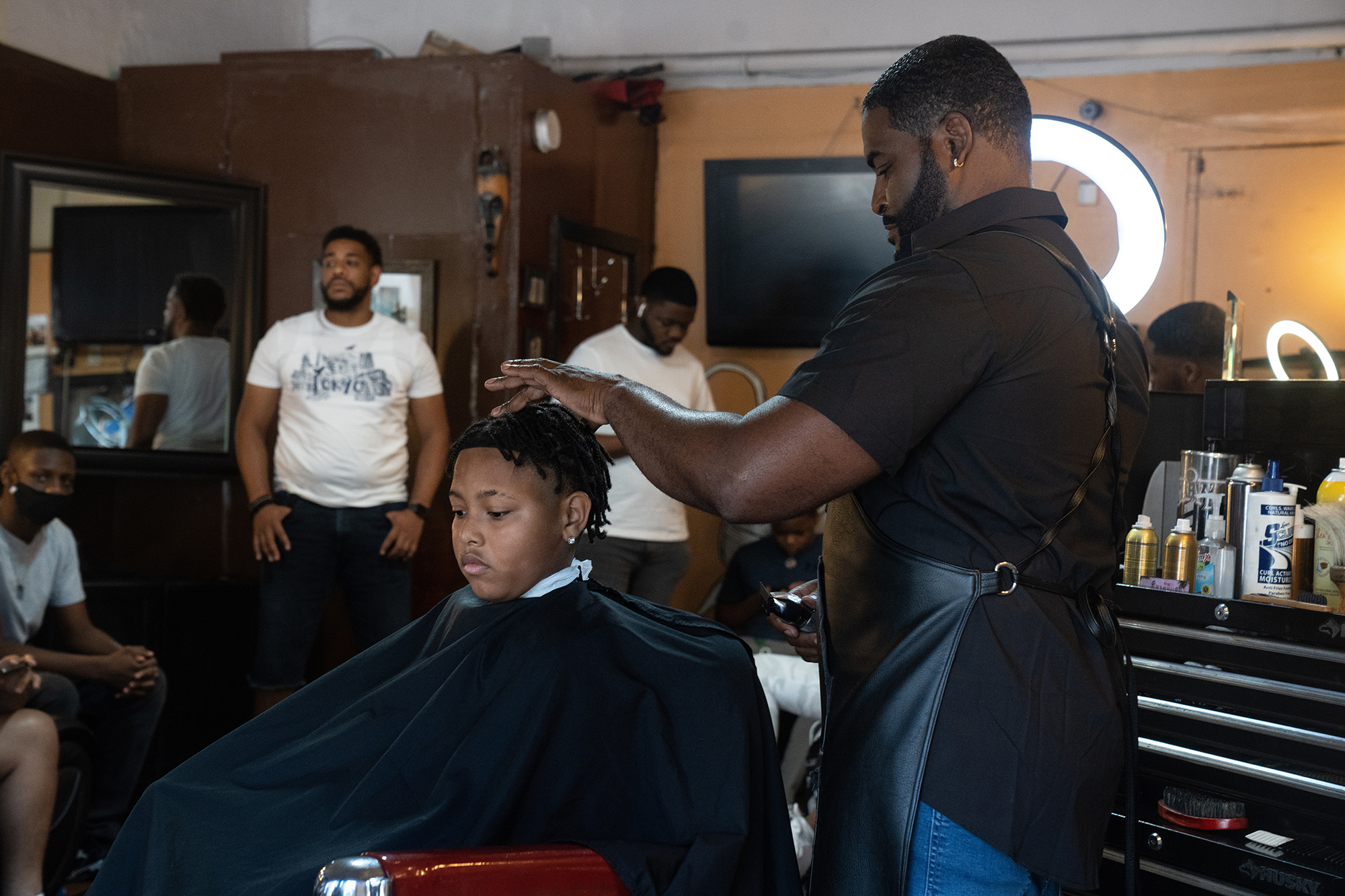Growth Spurt: B’more for Healthy Babies, Partners Broaden Reach to Family Health
July 23, 2025 Charles Schelle
Read how the School of Social Work’s arm of the citywide initiative has grown to support the well-being of the men who help raise children in the latest issue of “CATALYST” magazine.
Photo: The Center for Restorative Change’s B’more for Healthy Babies is using an outreach model focused on engaging men — fathers, grandfathers, and uncles —through barbershops like this one in Upton/Druid Heights.
Known primarily for its work in maternal and infant health, B’more for Healthy Babies (BHB) at the University of Maryland School of Social Work’s (UMSSW) Center for Restorative Change is evolving. BHB is now deepening its roots in the community — building new partnerships and broadening its reach to address the full spectrum of family and community well-being.
While the health of babies remains central to its mission, the Upton and Druid Heights arm of this citywide initiative has grown to recognize and support the well-being of the men — fathers, grandfathers, and caregivers — who help raise them.
“There’s no way that we can improve maternal and infant health outcomes solely by focusing on mothers and children. Our outcomes are interconnected with people who mothers and children are connected to,” said Stacey Stephens, MSW, LCSW-C, clinical assistant professor, UMSSW, and program director. “It’s connected to dads and grandparents. If we’re able to improve health intergenerationally, then it’s better for the entire community.”
What started as outreach to mothers about safe sleep practices and the benefits of breastfeeding to reduce infant mortality has grown into a comprehensive initiative —encompassing family planning, smoking cessation, nutrition, stress management, blood pressure monitoring, and mental health support — through a coordinated network of partners.
“We have doubled down on really addressing social determinants of health, which we know are the factors that impact and are the drivers of a lot of the disparate outcomes that we see not only around maternal and infant losses and morbidity, but also around chronic illnesses, such as hypertension and diabetes,” Stephens said.
One outreach model focused on engaging men — fathers, grandfathers, and uncles —through barbershops. What began as visits three times a year grew to 10 annual events, thanks to BHB and its partners. The effort started with Father’s Day Barber Baby Day and, following the pandemic, evolved into “The Huddle” — monthly Thursday gatherings held in barbershops to connect and support dads.
“On Fridays, the barbershops take it over, and they finish the education when they’re seeing their patrons, and then they challenge their patrons to also share it with other families,” Stephens said.
Read more about B'more for Healthy Babies here.
The latest issue of "CATALYST" magazine highlights the School of Pharmacy's Mass Spectrometry Center; Police and Public Safety's comfort K9 Poe; the Costa Rica Faculty Development Institute; Bill Joyner, JD, MSW, of the Office of Community and Civic Engagement; the School of Medicine's work to develop physicians for rural areas; facts about the Universities at Shady Grove, and much more.